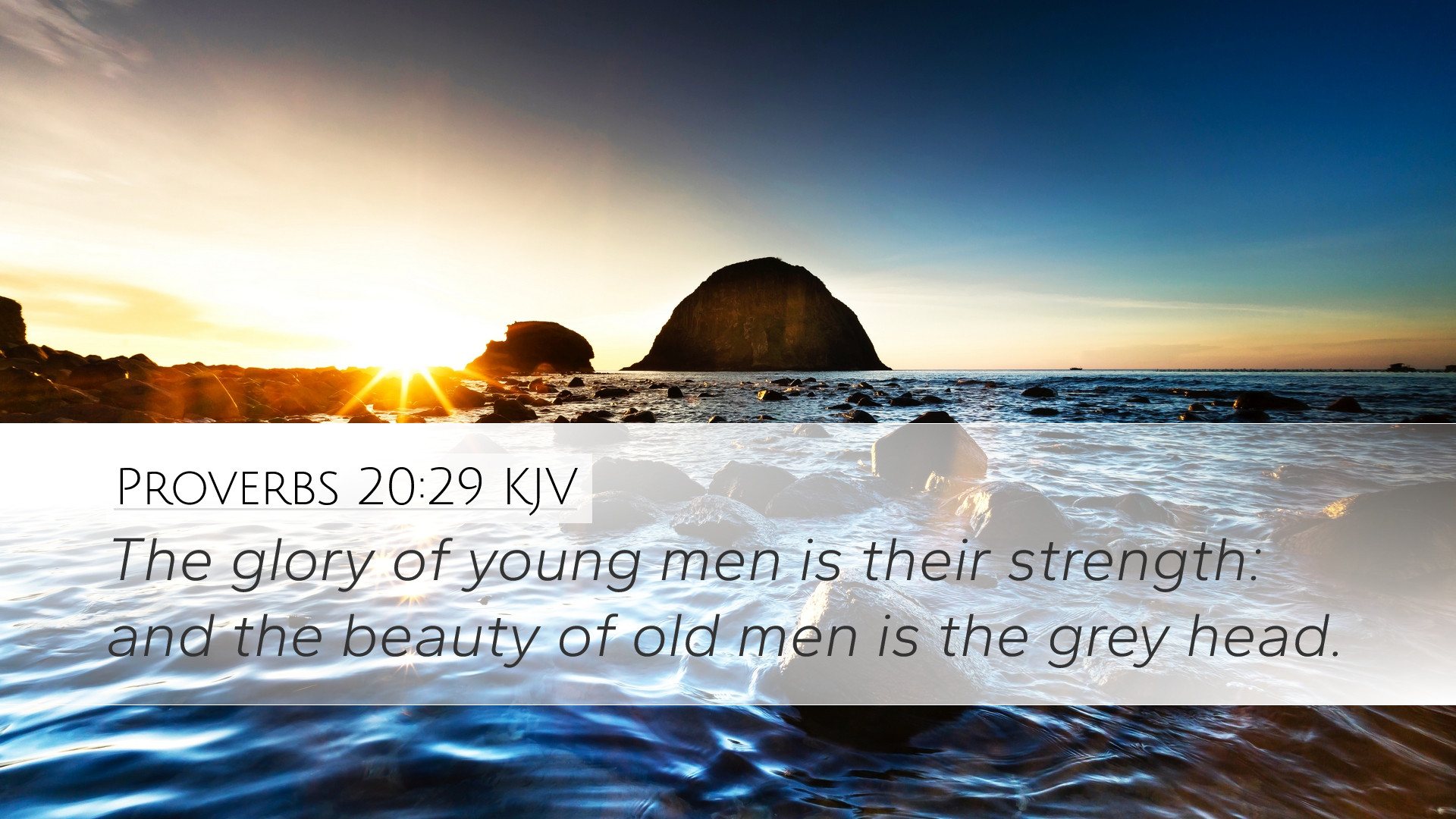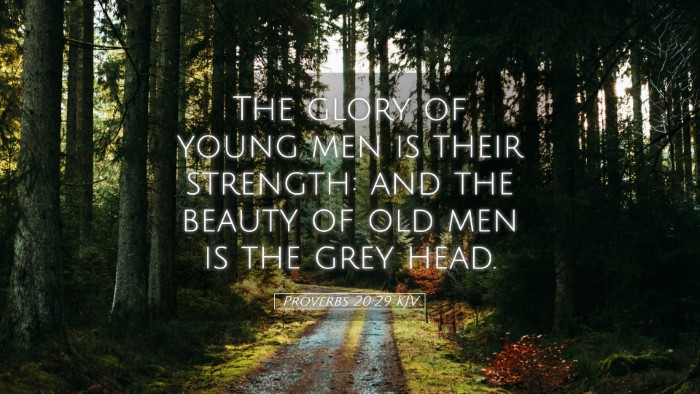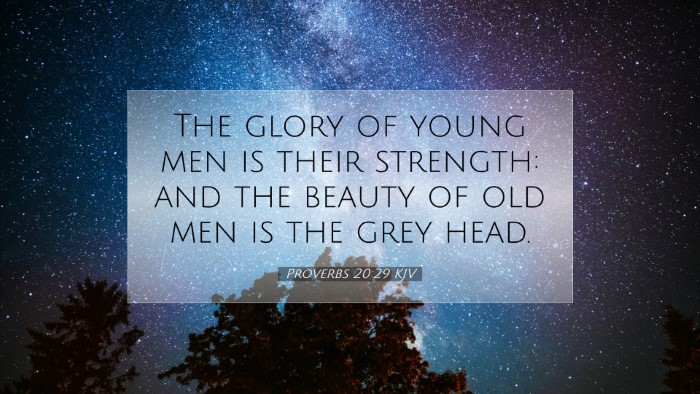Commentary on Proverbs 20:29
Proverbs 20:29 states:
"The glory of young men is their strength: and the beauty of old men is the gray head."
This verse presents a stark contrast between the attributes of youth and old age. Below, we summarize insights from notable public domain commentaries to explore its depth and implications.
Insights from Matthew Henry
Strength of Youth: Matthew Henry highlights that the "glory of young men" lies in their physical strength and vigor. He notes that youth is characterized by energy, vitality, and the capacity for hard work. This strength is invaluable and should be directed toward righteous endeavors. Henry emphasizes that youth should recognize their power not merely for personal gain but to serve God and their communities.
Beauty of Age: Conversely, Henry elucidates that the "beauty of old men" is found in their wisdom, experience, and the marks of age, symbolized by gray hair. The aged are often repositories of knowledge and insight gained through a lifetime of trials and tribulations. They should be valued and heeded, as their counsel can guide younger generations.
Insights from Albert Barnes
Dual Value: Albert Barnes emphasizes the dual value reflected in this proverb. He expounds on how strength represents a phase of life that is fleeting, while the maturity reflected in old age carries with it enduring beauty—the kind that stems from both wisdom and dignity.
Celebration of Both Ages: Barnes asserts that both youth and age are blessings that should be acknowledged and celebrated. Each stage of life has its own glory and purpose. Where youth has strength to labor, seasoned individuals carry the weight of experience, which enables them to make sound judgments and provide guidance.
Insights from Adam Clarke
Cultural Context and Interpretation: Adam Clarke offers a cultural overlay to this proverb, suggesting that in ancient Israel, gray hair was viewed as a sign of respect and honor. The elderly were often deferred to for leadership and decision-making due to their accumulated wisdom.
Applying to Modern Context: Clarke also urges readers to consider the application of this proverb in contemporary society. He points out that modern views may often idolize youth and strength at the expense of the elder's wisdom. He challenges audiences to cultivate an appreciation for both age and youth, recognizing that both have unique contributions to offer the community.
Theological Implications
This verse invites deep theological reflection on the nature of strength and beauty as gifts from God. It teaches us that:
- God's Design in Creation: Both youth and age reflect God’s creative intention. They serve as reminders of the human experience and God’s purpose throughout life.
- Value of Intergenerational Relationships: The passage calls for a harmonious relationship between young and old. Mutual respect and learning can enhance community life, enriching both parties.
- Importance of Wisdom: It affirms the importance of seeking wisdom that grows alongside age, prompting younger individuals to esteem the counsel of the older generation.
Practical Applications
For pastors, students, and theologians, Proverbs 20:29 carries several practical applications:
- Encouragement of Youth: Pastors can empower the younger generation to harness their vitality for the kingdom of God, encouraging service and outreach.
- Mentorship Programs: Churches may establish mentorship initiatives that pair young adults with seniors, allowing for the sharing of experiences and learning.
- Intergenerational Worship: Creating worship services that include both the young and the old fosters a community that honors both stages of life.
Conclusion
Proverbs 20:29 beautifully encapsulates the unique contributions of both youth and age, calling for acknowledgment and appreciation of the strengths each stage of life offers. The strengths of young men and the beauty of old men together testify to God's diverse handiwork in the tapestry of humanity. Recognizing the value in every life stage equips us to build a community grounded in honor, wisdom, and mutual respect.


